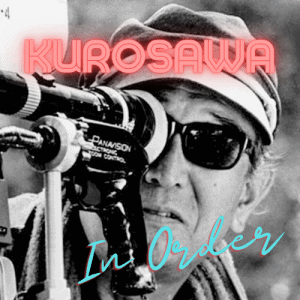

Kurosawa, In Order #13 – Ikiru
IKIRU (1952) The Idiot didn’t do well, but after the international success of Rashomon it didn’t matter. Kurosawa had an unprecedented amount of clout for

Kurosawa, In Order #12 – The Idiot
THE IDIOT (1951) Akira Kurosawa was a Shakespeare fan and a Dostoevsky fanboy. The former is evident from his free adaptations of Macbeth and King

Kurosawa, In Order #11 – Rashomon
RASHOMON (1950) Writing about Rashomon at this late stage is a challenge to a reviewer. What possibly can be added to the conversation? The orthodox

Kurosawa, In Order #10 – Scandal
SCANDAL (1950) By 1950, the post-war occupation of Japan was running its course, and restrictions and censorship by the occupying authorities slackened. That was a

Kurosawa, In Order #9 – Stray Dog
STRAY DOG (1949) Kurosawa had the cinematic chops to create compelling movies out of scenarios that weren’t on their surface cinematic or were just flat

Kurosawa, In Order #8 – The Quiet Duel
THE QUIET DUEL (1949) A strike had stopped production at Toho Studios prior to filming The Quiet Duel and Kurosawa was desperate to get back